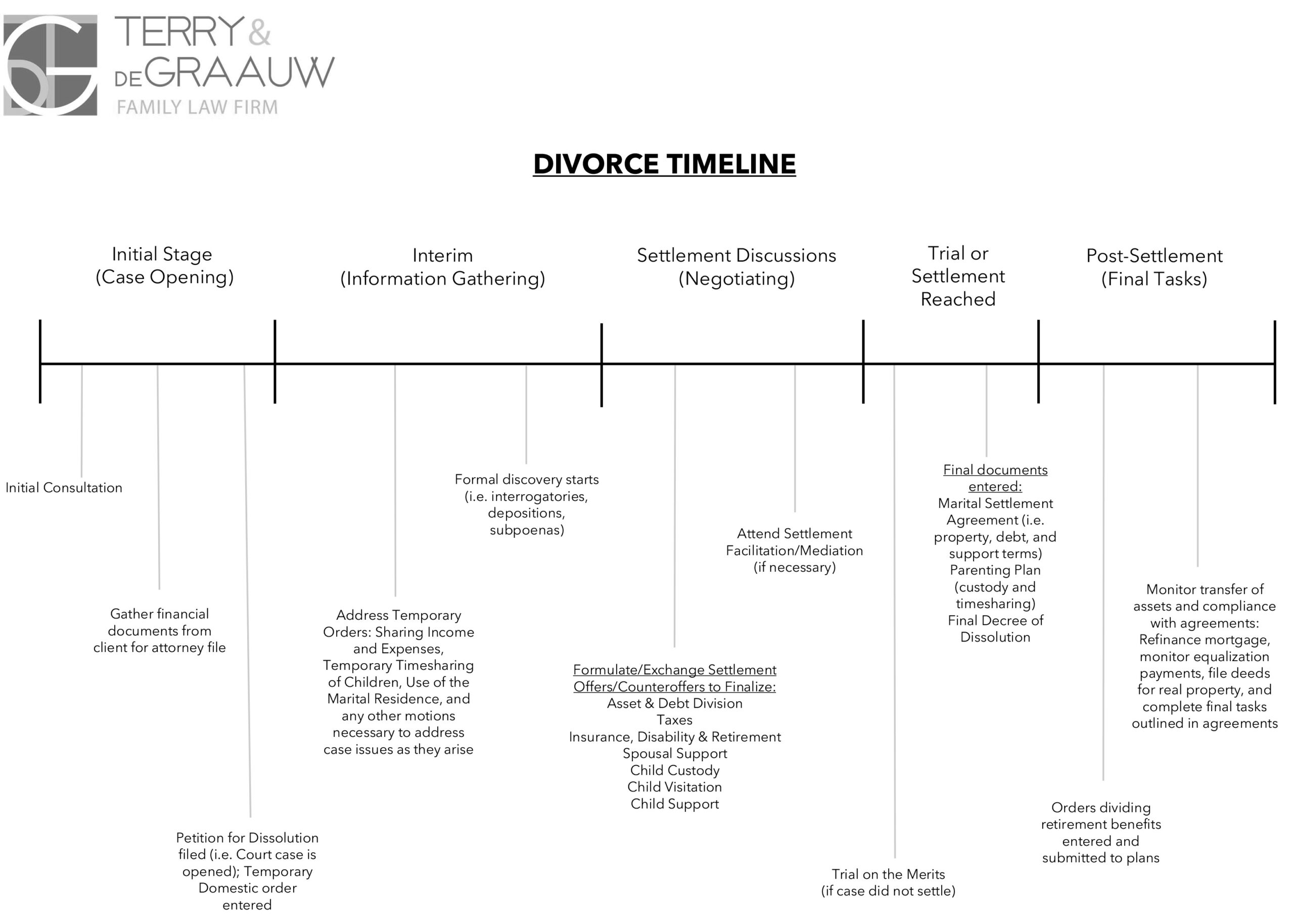If you are reading this, you’ve either started the divorce process, or it is something you are contemplating. Like most of the public you do not have formal training on the divorce process, the laws in New Mexico, or what it will mean for you and your family. It often feels like there is a veil between the public and the law, so we’re breaking down the stages of a divorce case to give you a comprehensive understanding of each step of the process.
Initial Stage & Case Opening
In the beginning, you will likely do a good amount of research on divorce laws in New Mexico, the different types of divorce processes, and the best family law attorneys in your area. Parties will schedule consultations with attorneys to determine if they prefer to be represented by counsel or proceed un-represented (also known as pro se). While it is not required that you have an attorney to get divorced, we encourage parties even in the simplest of divorces to seek advice from counsel to make sure parts of the agreement aren’t overlooked that have undesirable consequences down the road. Sometimes that can be a simple consultation or a more cost-effective mediated process.
If you retain an attorney, they will ask for a large amount of financial documentation and other information to provide a complete record of the marriage’s (also known as the community’s) finances. These documents will be disclosed to the other party (and their counsel, if they are represented), because both parties are entitled to complete disclosure of the assets and debts to be divided in the divorce.
In the initial stage, the case is opened with the Court in your district with the filing of a Petition for Dissolution of Marriage. There is no legal advantage to being the filing party, or Petitioner. Once the Petition is filed, it must be served upon the other party (the Respondent) who has 30 (thirty) days to file a response to the Petition. If no response is filed, the Respondent runs the risk of having a default judgment filed against them, and they forgo their right to control the outcome of the divorce. The Court will issue a Temporary Domestic Relations Order, which orders the parties to maintain the “status quo” until other orders are put into place to memorialize any agreements or settlement. This essentially means each party should continue to pay the monthly bills he or she has historically paid, and to not cut the other off from financial resources.
Interim Stage (Information Gathering)
In the interim stage, each party is required to produce initial financial documents as outlined in Rule 1-123 of the New Mexico Rules of Civil Procedure. The documents usually include: monthly bills, paystubs and bank account statements, which will help determine how the bills will get paid until the divorce is final (known as an interim division of income and expenses), as well as use of the marital residence, temporary timesharing arrangements with children, and any other issues that need to be addressed while the case is pending. Interim agreements ensure that the needs of each party are met until property can be formally separated, etc.
From here, a more formal and extensive information-gathering process called “discovery” begins. The discovery process requires each party to produce their financial documentation for a longer period of time (i.e., for the past 6 months to three years) and is used to negotiate the ultimate final division of the assets and debts, as well as determine any ongoing spousal support and child support. In rare cases, if the information is hidden, not disclosed or not easily attainable, a subpoena can be issued to relevant institutions to obtain the information. Sometimes, new information needs to be obtained, such as getting a current appraisal of a house. Formal discovery is not always necessary if the parties both feel they have adequate information to make decisions about their divorce, such as in a mediated divorce process.
Settlement Negotiations
Once all the information has been exchanged and both parties have complete and equal access to all information involved, the parties can exchange settlement offers and counteroffers to negotiate the final settlement. New Mexico is a community property state, which means everything that the parties acquire together during a marriage, except anything that is determined to be the separate property of a party, is considered jointly owned and must be equitably divided between them. Just like there are many ways to make change for a dollar, there are many ways to divide the assets and debts between two parties that will result in the same, equitable division determined by value. The information is summarized in an Assets and Liabilities worksheet, which illustrates the value of all community assets and debts and a list of all assets and debts each party will receive. The parties can agree to a division that is not equal or legally ‘fair’ to both parties, so long as the agreement is made knowingly and without duress.
Aside from the division of assets and debts, there are guidelines and statutes used to determine if one party is entitled to spousal support (also known as alimony), and to determine child support if there are minor children of the marriage. Child support is calculated based on a standard formula, as both parents are responsible for the shared cost of raising their children. In addition, the personal property of each spouse is often exchanged at this stage, as well as agreements on dividing furniture and other belongings amongst the parties.
If the parties cannot come to an agreement on their own, the Court requires they attend a settlement facilitation prior to holding a trial on the merits of the case. A settlement facilitation is similar to a mediation. At a settlement facilitation, a neutral attorney (or facilitator) aids in the negotiation process between each party and their attorney, with the goal of reaching a partial or full settlement of the issues in the case. In most cases the parties are in separate rooms and the facilitator shuttles between the two rooms. The vast majority of divorce cases in New Mexico settle during this process.
Trial
If the parties are unable to fully settle their case at a settlement facilitation, a trial on the merits is requested and scheduled with the Judge presiding over the case. Trials provide a final resolution to any disagreements but are not often needed to settle a divorce case. Upon completion, the Court enters a written ruling (“order”) which memorializes the property division, spousal support, insurances and the handling of taxes, Parenting Plan (details the custody and timesharing arrangement for the children) and a Final Decree of Dissolution of Marriage (declaring the divorce is process is completed and the parties are no longer legally married).
Post-Settlement & Final Tasks
Once the Final Decree of Dissolution is entered, the parties will work to complete any necessary tasks outlined in their agreement. These can include refinancing a home mortgage, paying an equalization payment from one party to another, recording deeds to transfer property, effectuating name changes, etc. If a retirement account or pension is divided in the divorce, specific court orders must be entered and submitted to the retirement plan administrators (often called Qualified Domestic Relations Orders) within a strict period of time after the divorce decree and cannot be put off until the retirement of the plan participant. Your attorney will usually remain on retainer until all the final tasks are completed, and to ensure any questions you have after the divorce are answered.
Kelly Squires, Managing Director of Terry & deGraauw, P.C. April 2023





